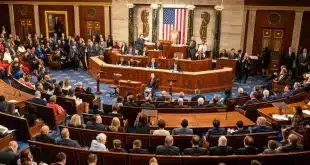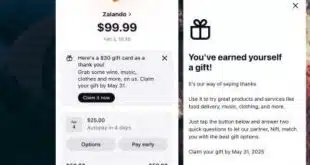Contactless payment technology picked up momentum with yesterday's news that 7-Eleven Inc. is adopting the technology chainwide and that Sheetz Inc. has completed installations at all 309 of its stores. And, contrary to some observers' argument that contactless payment will be held back by the absence of special breaks on interchange pricing from the bank card networks (Digital Transactions News, May 19), both convenience-store chains say acceptance costs figured little in their business case for the technology. While 7-Eleven monitors interchange and other acquiring costs, “the business case [for contactless payments] is we're all about convenience,” says a spokeswoman for the Dallas-based retailer, which plans to install radio-frequency-identification readers in all 5,300 of its U.S. stores by early next year. “Getting in and out is what our customers want to do, so that's our primary concern.” Even more blunt is Rich Steckroth, manager of new businesss development for Altoona, Pa.-based Sheetz, which has switched on receivers in all 309 of its stores and is co-issuing a contactless card with J.P. Morgan Chase & Co. Asked if Sheetz was bothered by the lack of contactless interchange incentives from Visa USA or MasterCard International, he says, “No, not a bit.” Contactless technology, which allows chip-embedded cards or other tokens to transmit account data to point-of-sale receivers linked to card terminals, shaves seconds off average tender times. Advocates say it's faster than cash, especially with waivers from Visa and MasterCard allowing consumers to skip signing receipts on payments under $25. Some experts who have followed the technology, though, say merchants will be slow to adopt it unless the card networks cut interchange as an incentive. Readers alone, they point out, cost about $150 each. For a chain like 7-Eleven, which will need to equip two to three points of sale per store, this will represent a $1.6 million investment at a minimum. Both bank card networks in the past have introduced pricing incentives for merchants to foster adoption of new payment technologies, observers point out. Most recently, for example, they have rolled out discounts on interchange for e-commerce transactions flowing through their online authentication systems. But the c-stores have other priorities, they say. Beyond speeding transactions, 7-Eleven says it is also looking at leveraging its investment by introducing other products and features. “It'll create platform for future prepaid services we might be offering,” says the spokeswoman, without being more specific. Sheetz figures most contactless payments will replace existing card transactions, rather than cash sales, and so will bring benefits by making those transactions go faster. Sheetz's Steckroth predicts between 5% and 10% of all card transactions will be flowing through PayPass, the contactless technology from MasterCard that the chain has adopted, within a year. He refuses to say how much volume that will represent. “I wouldn't expect these [PayPass] transactions will replace cash at all,” he says. “It's really a replacement for [existing] cards.” Sheetz will help prime the pump by issuing its own co-branded contactless card with Chase, and expects to have 100,000 of these in circulation by year's end. Customers will accumulate points on the card?10% on Sheetz purchases, 1% on sales at other stores, with no limit?that they can redeem on all Sheetz merchandise, from gasoline to gallons of milk. In addition to Sheetz, and 7-Eleven, other merchants that have adopted contactless programs so far include McDonald's Corp., Regal Entertaiment Group, a collection of movie houses, and Ritz Camera Centers Inc. Pharmacy chain CVS Corp. is accepting similarly equipped cards from American Express Co., whose program is called PayPass. A similar technology from ExxonMobil Corp. called Speedpass has been in operation at the company's gas pumps since the late '90s, though it operates on a different technical standard than that adopted by the bank card associations and AmEx.
Check Also
BlueSnap On Board with FlightLogger and other Digital Transactions News briefs from 6/12/25
FlightLogger, a provider of software for flight training, has chosen BlueSnap Inc. as its payments provider globally. …




